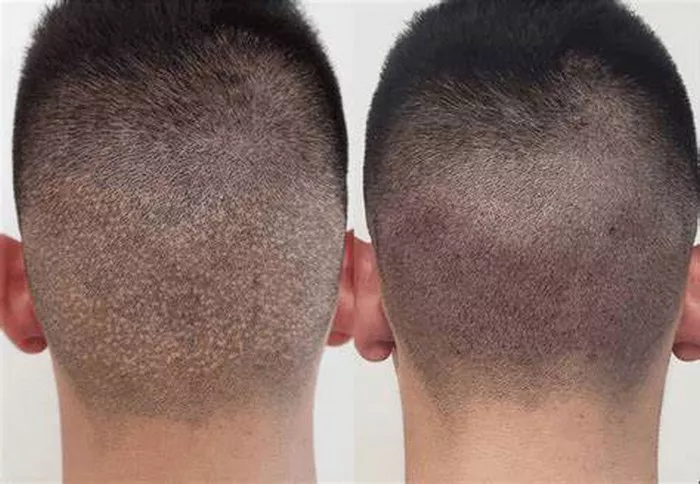Hair loss is a common problem that affects millions of people worldwide. Hair implants, also known as hair transplantation, is a popular treatment for hair loss. But do hair implants really work? In this article, we will explore the science behind hair implants, the different types of hair implants, and their effectiveness.
Hair implants involve transplanting hair follicles from one part of the body, usually the back of the head, to the balding or thinning areas. The procedure is typically performed under local anesthesia and can take several hours to complete. The transplanted hair follicles will then begin to grow new hair in the recipient area.
So, how effective are hair implants? The short answer is yes, hair implants can be an effective treatment for hair loss. However, the effectiveness of hair implants depends on a variety of factors, including the type of hair loss, the extent of the hair loss, and the skill of the surgeon performing the procedure.
The effects of hair transplants
The effects of hair transplants vary from person to person. Here are some effects that might make you reconsider:
Natural appearance: Hair transplants can make hair look more natural because the transplanted follicles are similar to the original hair follicles.
Long-term results: Hair transplantation can produce long-term results because transplanted hair follicles can grow new hair in a new location.
Restore confidence: Hair transplants can help restore confidence for those who have lost confidence due to hair loss.
The risks of hair transplantation
Hair transplants also have some risks that might make you reconsider:
Infection: The hair transplant may cause infection because the transplant area needs to be operated on.
Bleeding: The hair transplant may cause bleeding because the transplant area requires surgery.
Swelling: Hair transplants may cause swelling because the transplanted area requires surgery.
Pain: The hair transplant may cause pain because the transplant area needs to be operated on.
Precautions for hair transplantation
Choose the right doctor: It is important to choose an experienced doctor because hair transplants require surgery.
Understand the risks and effects: It is important to understand the risks and effects of hair transplantation to help you make an informed decision.
Follow your doctor’s advice: Following your doctor’s advice is very important as it helps ensure the success of your surgery.
Prepare for post-operative care: It is very important to prepare for post-operative care, as it helps ensure that the transplanted hair follicles are able to grow new hair.
There are two main types of hair implants: follicular unit transplantation (FUT) and follicular unit extraction (FUE). FUT involves removing a strip of skin from the back of the head and dissecting it into individual hair follicles. These follicles are then transplanted into the recipient area. FUE, on the other hand, involves removing individual hair follicles directly from the scalp and transplanting them into the recipient area.
Both FUT and FUE have their advantages and disadvantages. FUT is typically less expensive and can be more effective for larger areas of hair loss. However, it can also result in a visible scar at the donor site. FUE, on the other hand, is less invasive and does not leave a visible scar. However, it can be more expensive and may not be as effective for larger areas of hair loss.
So, how effective are hair implants? Studies have shown that hair implants can be highly effective for treating hair loss. One study published in the Journal of Cutaneous and Aesthetic Surgery found that 93.4% of patients who underwent hair transplantation were satisfied with the results. Another study published in the International Journal of Trichology found that hair transplantation was effective in treating androgenetic alopecia, a common form of hair loss.
However, it’s important to note that hair implants are not a one-time solution for hair loss. Hair loss is a progressive condition, and additional hair loss may occur over time. Therefore, some patients may require additional hair transplant procedures to maintain their results.
In addition to hair implants, there are also other treatments for hair loss, including medications, such as minoxidil and finasteride, and low-level laser therapy. These treatments can be effective for some patients, but they may not be suitable for everyone.
In conclusion, hair implants can be an effective treatment for hair loss. However, the effectiveness of hair implants depends on a variety of factors, including the type of hair loss, the extent of the hair loss, and the skill of the surgeon performing the procedure. Patients considering hair implants should consult with a qualified surgeon to determine if the procedure is right for them. With the right care and attention, hair implants can help to restore confidence and self-esteem in those suffering from hair loss.
Related topic:
- What to Expect Two Months After a Hair Transplant?
- Hair Transplants and Alopecia: Do They Really Work?
-
Does FUE Leave Scars? Understanding Follicular Unit Extraction


